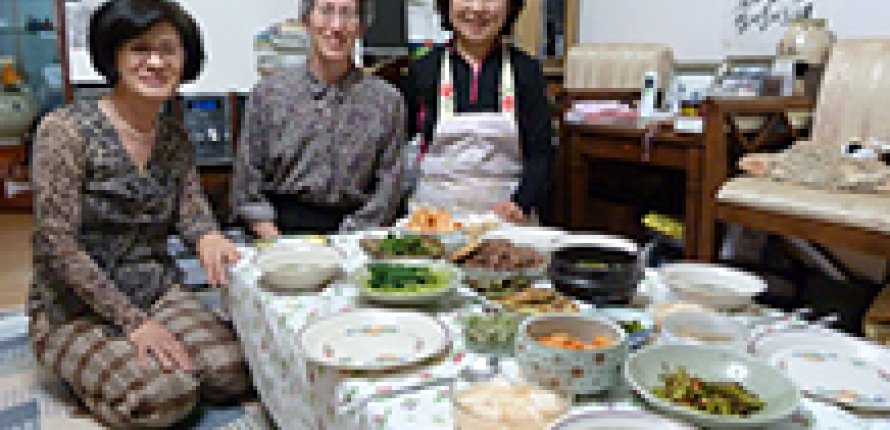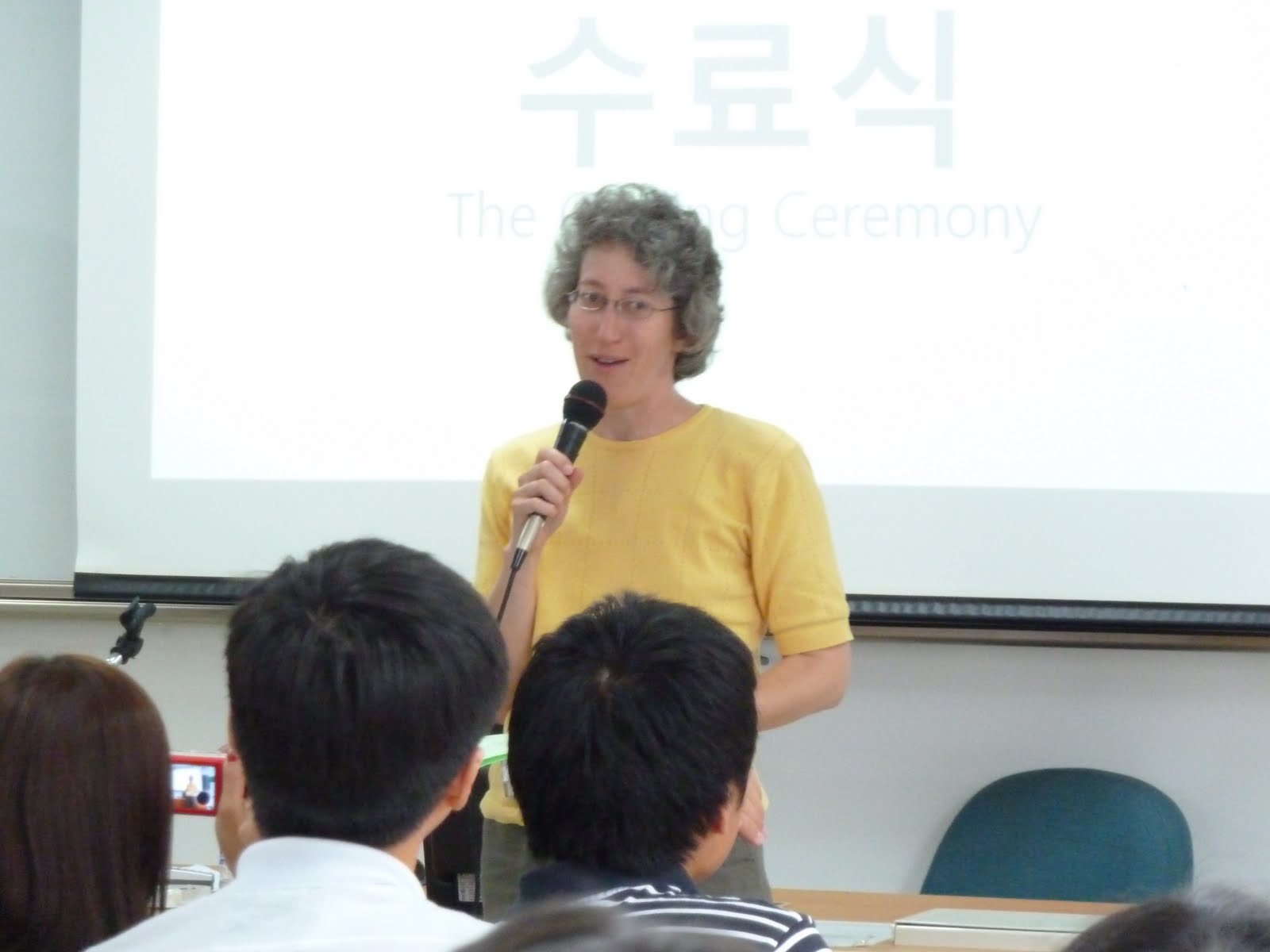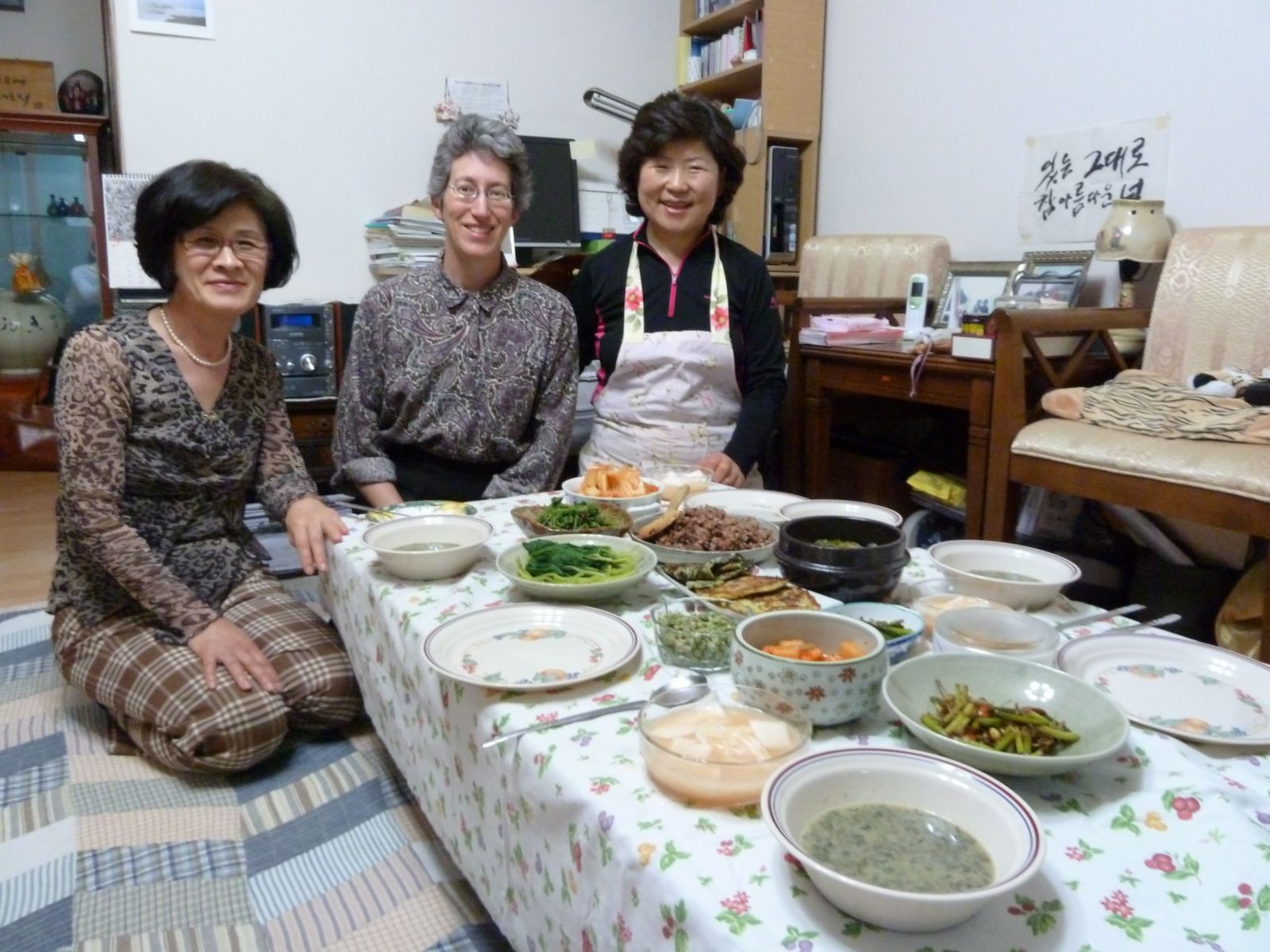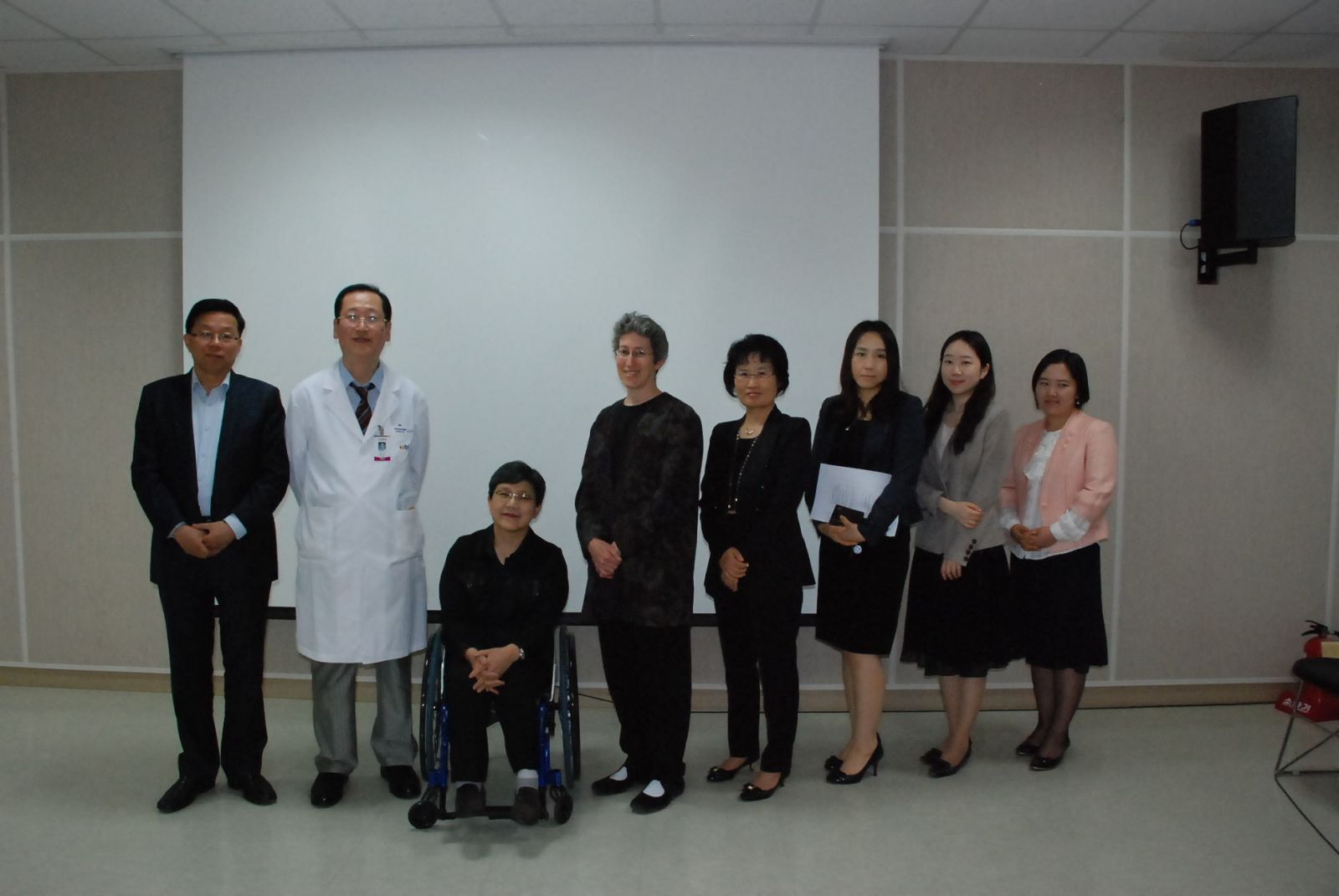Unfolding the Impact of My Fulbright Scholar Award

Deborah Engelen-Eigles, Faculty of Sociology at Century College
2011-2012 Fulbright U.S. Scholar to South Korea
Spending a year conducting research at South Korea’s flagship research institution in Seoul was perhaps an unlikely setting for a faculty member from a teaching-focused, two-year community and technical college like myself. However, I knew my teaching would be invigorated by taking a break, and I was hungry to immerse myself in the research side of sociology, with a focus on the overlapping fields of gender and disability studies.
Seoul National University’s main campus is located on the southern outskirts of the capital city where it was moved from a more central location in 1975, I was told, due to student agitation in the democracy movement. I was provided with an apartment on campus in a building with other foreign and visiting faculty. A short walk through this beautiful wooded campus of rolling hills brought me to my department office and many of the main campus buildings. A short bus ride into the adjoining neighborhood took me to shopping, parks, and the expansive Seoul subway system, providing access to anywhere in this metropolitan area of 25 million inhabitants.
While I conducted guest lectures and mentored graduate students at my host institution, much of my time was spent outside the department conducting interviews. My project afforded me the opportunity to meet women with a range of diverse experiences and stories with whom I would otherwise have never crossed paths. My purpose was to learn about their experiences as women with disabilities in accessing health care, yet I learned so much more. Since we met wherever it was most convenient for them, I was welcomed into many different neighborhoods, workplaces, community centers, and homes. I got a glimpse into their lives, and through these interactions, learned much about Korean culture, customs, and lived history as well. My work was facilitated by an exceptionally capable and talented assistant who acted as a translator and “cultural bridge.”
After completing the interviews, I presented my work at gatherings to which my interviewees were invited, as well as to advocacy organizations, the press, and healthcare professionals who could put the information to use to improve care and address the barriers to effective care that participants in my research had highlighted.
Upon returning to the United States, I have found the impact from my Fulbright grant to be continually unfolding. Initially, my research and personal intercultural experiences provided a wealth of examples in my teaching. I also reworked one course and developed another; most importantly, I rethought the way I structured and addressed global-local connections and international material in all my courses. Beyond this, I have continued to be a strong advocate on my campus for intercultural exchange, the Fulbright Program, and the importance of world languages in an environment of shrinking budgets when these are often some of the first areas targeted. I am gratified, too, to be able to give back through a continuing relationship with the Fulbright community, first as a discipline peer reviewer, and now, as a Fulbright U.S. Scholar Alumni Ambassador.
Learn more about Debbie Engelen-Eigles’ Fulbright Scholar experience on her Fulbright U.S. Scholar Alumni Ambassador page.



